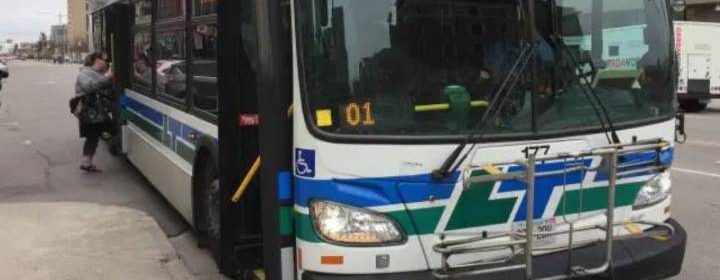London Transit Commission bus driver tests positive for coronavirus

The London Transit Commission (LTC) confirmed on Wednesday that a bus operator has tested positive for the novel coronavirus.
The LTC says it learned on Tuesday that one of its transit operators had tested positive for COVID-19 and that staff “immediately engaged with the Middlesex-London Health Unit (MLHU) to jointly investigate and determine next steps.”
According to the LTC, the driver worked Route 20 between 7 a.m. and 3 p.m. “on any of the days between March 24 and March 31.”
The health unit is reportedly reaching out to those who have been in close contact with the bus driver to provide guidance on next steps. The LTC says those who took the 20 during the noted days and times “who feel well and do not have symptoms” do not need to call public health.
“Those who develop symptoms are asked to visit covid19checkup.ca where the online assessment tool will advise whether it is necessary to go to an Assessment Center to get tested. If you require emergency medical assistance, please call 911,” the statement said.
[ Sign up for our Health IQ newsletter for the latest coronavirus updates ]
The LTC introduced procedure and policy changes on March 20 in an effort to slow the spread of the novel coronavirus and protect its drivers, asking that transit riders enter through the rear doors of the bus. Those with accessibility needs are still able to enter the bus through the front door, though as of April 4, all passengers entering through the front doors are required to confirm to the driver that they are not suffering any symptoms.
Questions about COVID-19? Here are some things you need to know:
Health officials caution against all international travel. Returning travellers are legally obligated to self-isolate for 14 days, beginning March 26, in case they develop symptoms and to prevent spreading the virus to others. Some provinces and territories have also implemented additional recommendations or enforcement measures to ensure those returning to the area self-isolate.
Symptoms can include fever, cough and difficulty breathing — very similar to a cold or flu. Some people can develop a more severe illness. People most at risk of this include older adults and people with severe chronic medical conditions like heart, lung or kidney disease. If you develop symptoms, contact public health authorities.
To prevent the virus from spreading, experts recommend frequent handwashing and coughing into your sleeve. They also recommend minimizing contact with others, staying home as much as possible and maintaining a distance of two metres from other people if you go out.
For full COVID-19 coverage from Global News, click here.
Source: Read Full Article
